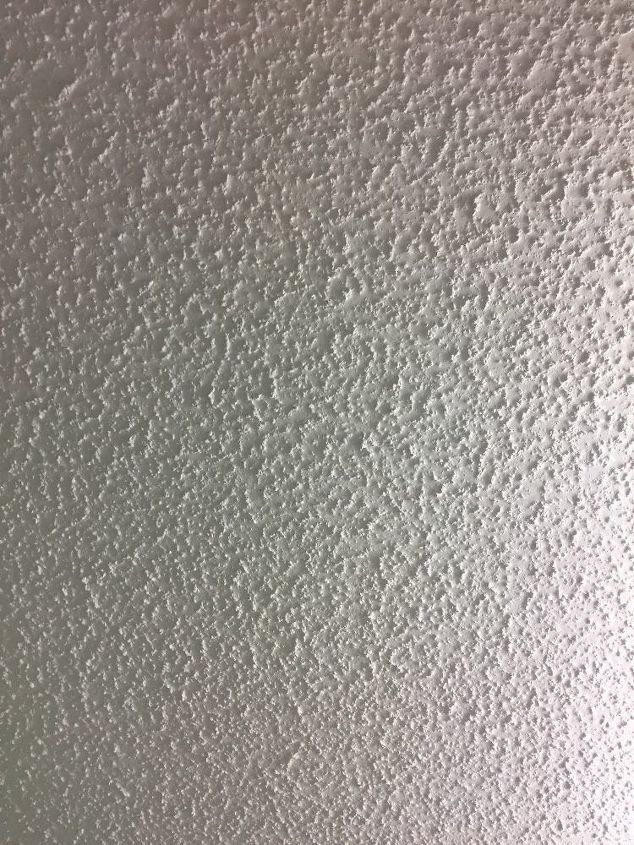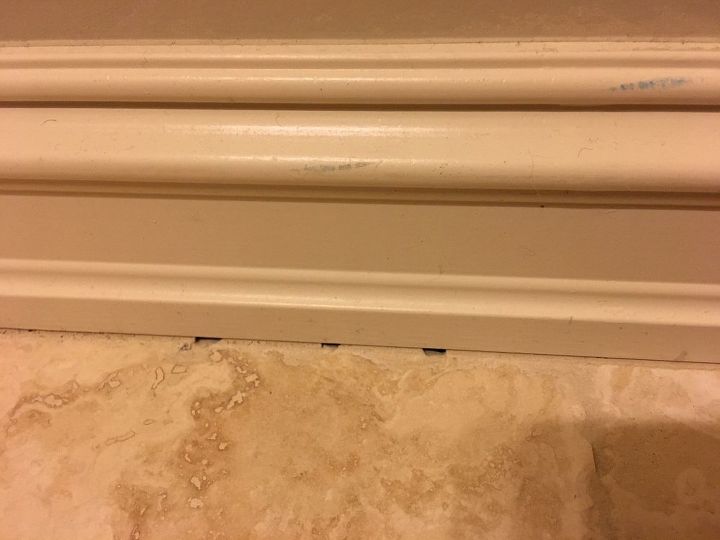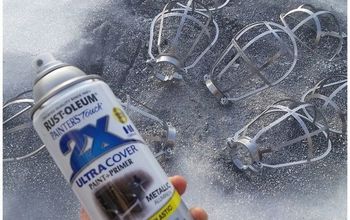How can I get rid of japanese beetles with epsom salt?
Related Discussions
How to get rid of mice?
We seem to have some unwelcome Mickeys and Minnies in our house. What is the best way to get rid of them?
How to remove popcorn ceiling with asbestos?
I want to remove my popcorn ceiling, but it has asbestos in it. How do I go about this safely?
How to caulk baseboard gaps?
How do I fill gaps at baseboard, should I caulk? If so, does anyone know how to caulk baseboards?
How to fix squeaky hardwood floors?
How do I fix squeaky hardwood floors?
How can i get rid of pantry moths . Seem to keep coming back.
How can I use Borax to get rid of spiders and insects?
Thought I read/saw in your column "that Borax rids spiders & insects around your house". I did read it but now I can't find where it was. Please reply.




Here you go! One cup of Epsom Sale to 5 gallons of water.
https://www.gardeningknowhow.com/plant-problems/pests/pesticides/epsom-salt-for-pest-control.htm
Epsom Salt Solution Insect Control – A mixture of 1 cup Epsom salt and 5 gallons of water may act as a deterrent to beetles and other garden pests. Mix the solution in a large bucket or other container, and then apply the well-dissolved mixture to foliage with a pump sprayer.
Hi Cee. You can dissolve a cup of Epson salt in 5 gallons of water to make a pesticide to get rid of those pesky beetles. btw you can mix 2 tablespoons of Ep Salt in a gallon of water and spray it on your plants. Flowers and veggies thrive with it. Use once a month. Good luck Cee. Stay well.
Hi! Try this:
https://www.hometalk.com/diy/grow/roses/epsom-salt-in-the-rose-garden-8653720
Epsom Salt in the Garden - It Works
Here is a post that can help you with this issue. Good luck. https://www.gardeningknowhow.com/plant-problems/pests/pesticides/epsom-salt-for-pest-control.htm
I found it didn't work. I've had the foul things for years and they have eaten most of my lilies and left brown egg clumps on and under the surviving leaves. I finally found pyrithirone! Spray it only on the affected plants - no others,and around their bases. These guys hide in the soil. They can live until the next season in the ground. Pyrithirone worked for me
Here's another article that give you a few options in case the salt doesn't work. There's a recipe for a natural solution that might help. https://www.almanac.com/pest/japanese-beetles
it only keeps them off plants does nothing to control the pest waste of time and $ Use Neem oil it's non toxic safe to plants as well or an Organic pest control which will not work if you use pesticides or herbicides that kill off beneficial bugs & microbes in soil.Four Ways to Control
Japanese Beetles
Play DefenseA multi-part attack is best. Start by spraying the affected plants with Japanese Beetle Killer (pyrethrin) or neem at the first sign of attack.
Pyrethrin-based insecticide is a safe and effective way to control these pests on vegetables, grapes, raspberries, flowers, roses, trees and shrubs. In addition to controlling Japanese beetles, it also controls cucumber beetles, flea beetles, cabbageworms, Colorado potato beetles, and more.
Neem oil comes from a tree; when sprayed on plants, it reduces feeding. Scientists call it an antifeedant. Important: neem works best when applications begin at first sign of attack.
Hand PickJapanese beetles are slow. You can easily pick them off plants with your hands and toss them into a bucket of soapy water. Do it in the morning when the beetles are less alert.
PreventAlthough the following solutions won't provide immediate gratification, you will be better off next year. Beneficial nematodes kill the grubs that turn into Japanese beetles. Ideally, apply them in spring before the beetles emerge. The second half of this 1-2 prevention punch is Milky Spore, which also kills grubs. It takes a year or so to get established in your soil, but it keeps working for 10 years or more.
TrapA Japanese beetle trap is recommended only if you have a large yard, and can place the trap away from your garden. If you have a small yard, you'll just be telling the beetles, "The party's at my house!" If you use a trap, put it out for a day or two at a time every couple of weeks. Japanese Beetles are often described as iridescent green beetles. Other beetles like the Fig Beetle and False Japanese Beetle are often mistaken because of this. While their heads are a metallic green, their wings are a brown to bronze color with recognizable white tufts around them. Look for the tufts for a positive ID!
How Do We Control Them?The best way to control Japanese Beetles is by stopping them before there is an infestation through preventative treatments. These treatments include applying beneficial nematodes to kill grubs, using Milky Spore to prevent yearly recurrences and utilizing row covers to limit damage.
If prevention is not an option or if you have adult beetles making their way in from nearby areas, then direct, spray-on treatments will be your best plan of action. The infective fungus, Beauveria bassiana, kills both grubs and adults while remaining harmless to beneficial insects. It is a fantastic choice for organic growers trying to stay away from conventional pesticides. Surround WP is the next best option to save your plants from damage. Sprayed onto foliage and fruit, it deters beetle feeding and helps shield plants from heat stress.
Here are several ideas for using epsom salt in your garden https://www.pinterest.com/pin/828169818957738521
Nothing worse than Japanese Beetles attacking you with epsom salts.